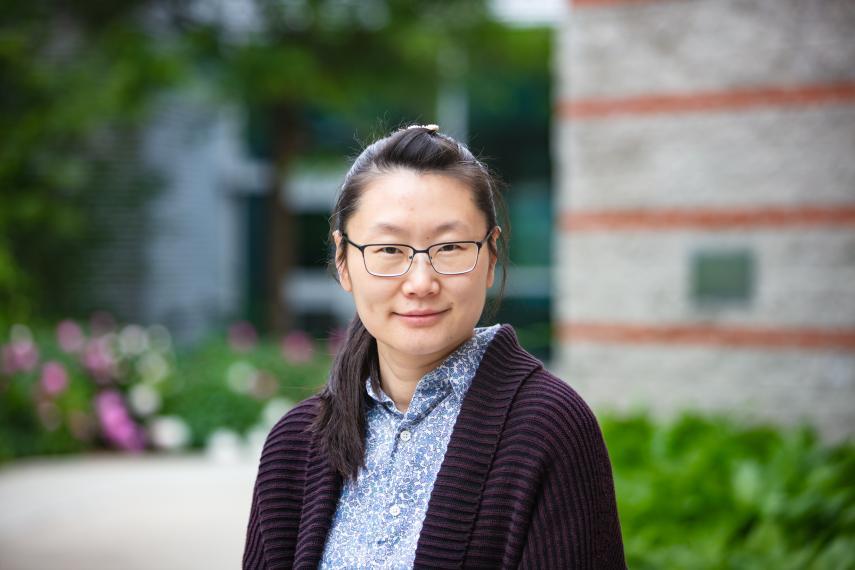Emily Chiang

Find Related People by Keyword
Education and Employment Background
Dr. Emily Chiang received her PhD in Bioscience Engineering from KU Leuven in Belgium, and her master’s and bachelor’s degrees in Chemical Engineering from the University of Toronto. She worked in the mining industry for five years before pursuing academic career. She joined the School of Engineering at the University of Guelph since 2014, and she is an Associate Professor.
Research Themes
Chiang specializes in the implementation of mineral carbon sequestration in agricultural setting, promoting alkaline mineral soil amendment as a climate change stabilization wedge with environmental relevance and based on fundamentals of earth sciences. She is actively engaged in utilizing process intensification techniques to aid in pilot-scale and field-scale experimentation of phytoremediation, microalgal treatment of industrial wastewaters, and micro-structured metals for potable water disinfection. Her research solves environmental pollution problems through development of sustainable innovative technologies, reducing health risks associated with contaminants and protecting sensitive ecosystems, with the engagement of a diversity of industrial, governmental, and not-for-profit organizations, and a focus on knowledge transfer and translation. Key areas of focus include:
- Carbon dioxide sequestration. Chiang and her team explore ways to accelerate CO2 sequestration in soils through applying wollastonite in agricultural soils. Her work for the first time verified that wollastonite soil amendment can lead to accumulation of inorganic carbon in soils, and that leguminous crops enhance the weathering of wollastonite. She is working on both experimental and modeling work to gain useful insights of the geochemical interactions among the minerals, plants, soils and air, as well as to assess the risk of applying minerals to agricultural soil.
- Valorization of waste products from industry. Chiang explores industry waste products with the aim of preventing their accumulation in waste sites or their emissions to the environment, using them as sources of valuable materials (e.g. metals, nutrients), and converting them into valuable products (e.g. nutraceuticals, building materials, specialty minerals). She also explores phytoremediation of persistent organic pollutants, phytotoxicity of rare earth elements, indoor air quality, alternative fertilizers and soil amendments, water disinfection, and production of nanomaterials.
Highlights
- Natural Sciences Research Council of Canada (NSERC) Discovery grant, 2015
- NSERC Research Tools and Instruments grant, 2015
- Canada Foundation for Innovation grant, 2015, 2017
- Ontario Ministry of Agriculture, Food and Rural Affairs grant, 2015, 2017, 2021
- Ministry of Economic Development, Job Creation and Trade, 2018
- Ontario Early Researcher Award, 2019
Media Coverage
Funding and Accolades
- CEPS University of Guelph: Three CEPS Research Projects Funded by Ontario
- The Ontarion: $1.3 Million Invested in Research Leaders
- Guelph Today: Leading U of G researchers receive $630,000
- https://news.uoguelph.ca/2015/11/17931/
Carbon sequestration
- CEPS University of Guelph: Capturing Carbon
- Canadian Wollastonite: Stacking Benefits: Crop Performance + Carbon Sequestration
Waste valorization